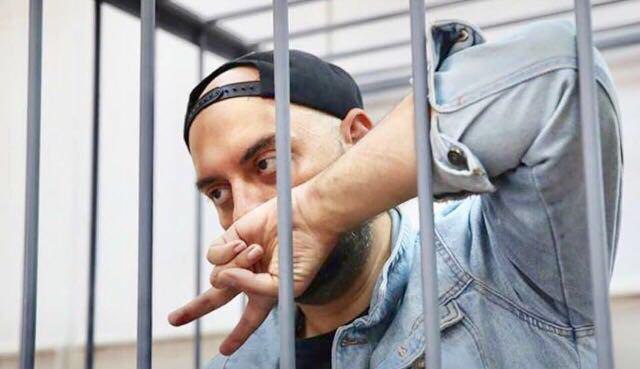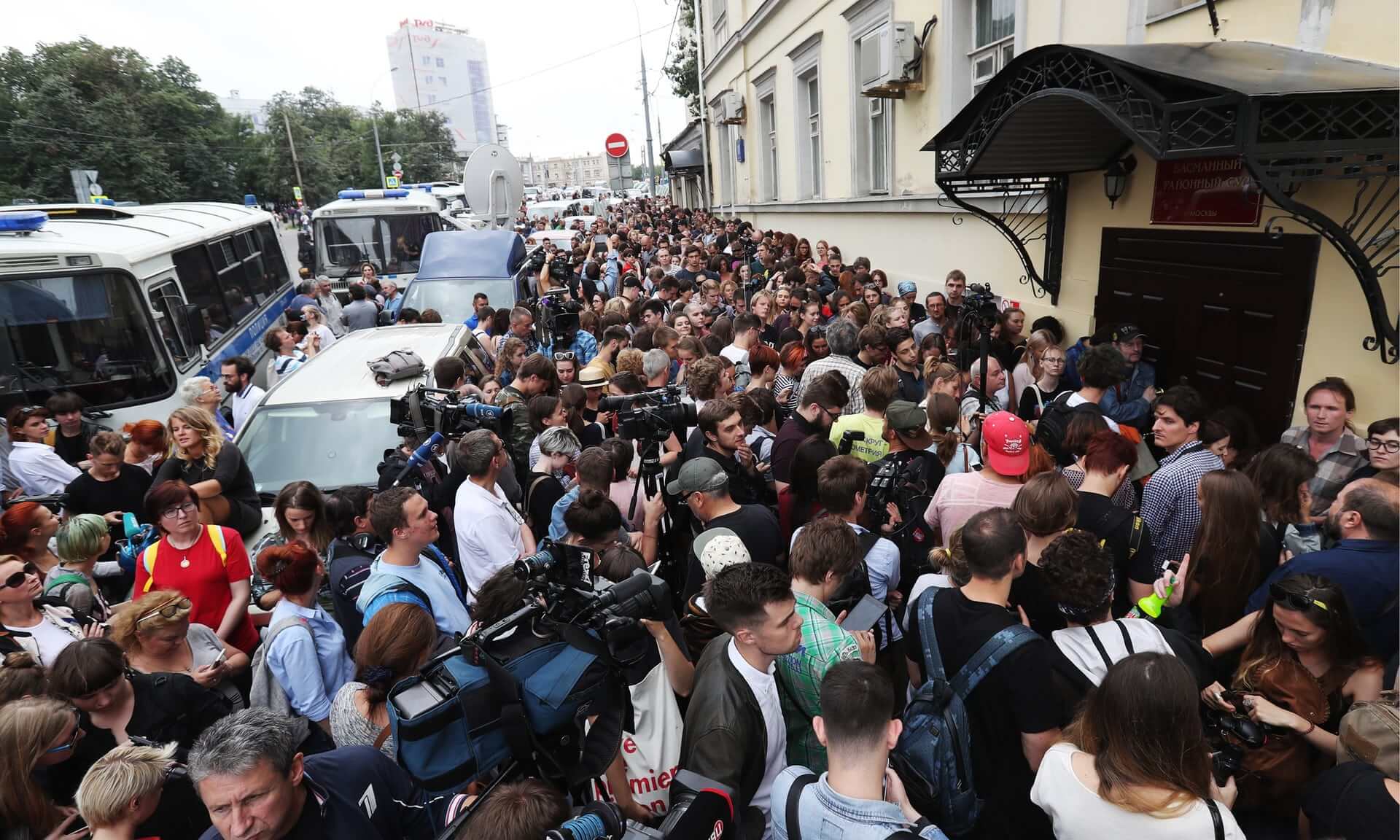By: Daniel McElroy
Kirill Serebrennikov, one of Russia’s most acclaimed theatre and film directors known for his virulent criticism of conservatism and the Putin regime, has been detained by authorities in St. Petersburg. On Tuesday, he was charged in a Moscow court with embezzling 68 million roubles (about $1.1 million) of state funding that had been allocated for a theatre project called Platform between 2011 and 2014. Many argue that the charges are fabricated due to his criticism of the Putin administration. Specious fraud and corruption charges are some of the Putin administration’s most commonly used weapons to imprison dissidents. The charges carry a maximum sentence of 10 years in prison.
Serebrennikov is well known as the artistic director of the progressive, avant-garde Gogol Center, which frequently showcases plays and other experimental pieces depicting sexual and political themes not otherwise tolerated in contemporary Russia. Serebrennikov is outspoken about his own political views as well: he once tried to show a documentary about Pussy Riot at the Gogol Center (until the screening was cancelled by the Ministry of Culture), and has railed against censorship of artists throughout Russia, commenting last year that “everything is returning to the most pathetic Soviet practices”.
Though the Gogol Center’s work has been quietly allowed by Russian authorities for years, it appears that Serebrennikov’s investigation and detention may be an attempt to silence his frequent criticism of the Kremlin. In May, Serebrennikov, two other directors, and an accountant were brought in for questioning about the funds that had allegedly been misspent. While Serebrennikov and the other two directors denied involvement in corruption, the accountant provided “evidence” against them.
Serebrennikov claims that the Russian government alleges the Platform project—the theatre project he allegedly stole from—never resulted in the productions it was meant to create. In June, he used a Facebook post to share over 100 photos of posters and tickets (including dates and times of performances) for the Platform productions. He also cited a particularly prominent production of Shakespeare’s A Midsummer Night’s Dream that was part of Platform, which was performed more than 15 times and received nominations for awards, but which authorities now deny ever occurred. The post has been shared over a thousand times by supporters.
The use of corruption charges is a common tactic used by Russian authorities intent on silencing dissidents. The most well known case is perhaps that of Sergei Magnitsky, the lawyer who exposed a massive fraud by Russian tax officials, was arrested and imprisoned in 2008, died from beatings in prison in 2009, and was found guilty of tax fraud posthumously in 2013 in a show trial meant to discredit him. In another case quite similar to Serebrennikov’s, Putin’s main political opponent Alexei Navalny and his brother Oleg were also tried in 2013 on bizarre embezzlement charges in which the state never proved any money had even gone missing. They were convicted and sentenced to five years in prison, but Alexei was released in an unprecedented reversal of the court’s decision after public outcry. His brother remains in prison, surely as a measure of punishment and intimidation directed at Alexei.
Other recent show trials meant to send a message of intimidation to cultural figures who often have an outsized influence on public opinion include those of Oleg Sentsov and Pussy Riot. In these instances, charges were noticeably fabricated and specious evidence was used to send a message. In the case of Sentsov, Amnesty International described the trial as being “redolent of Stalinist-era show trials of dissidents.”


